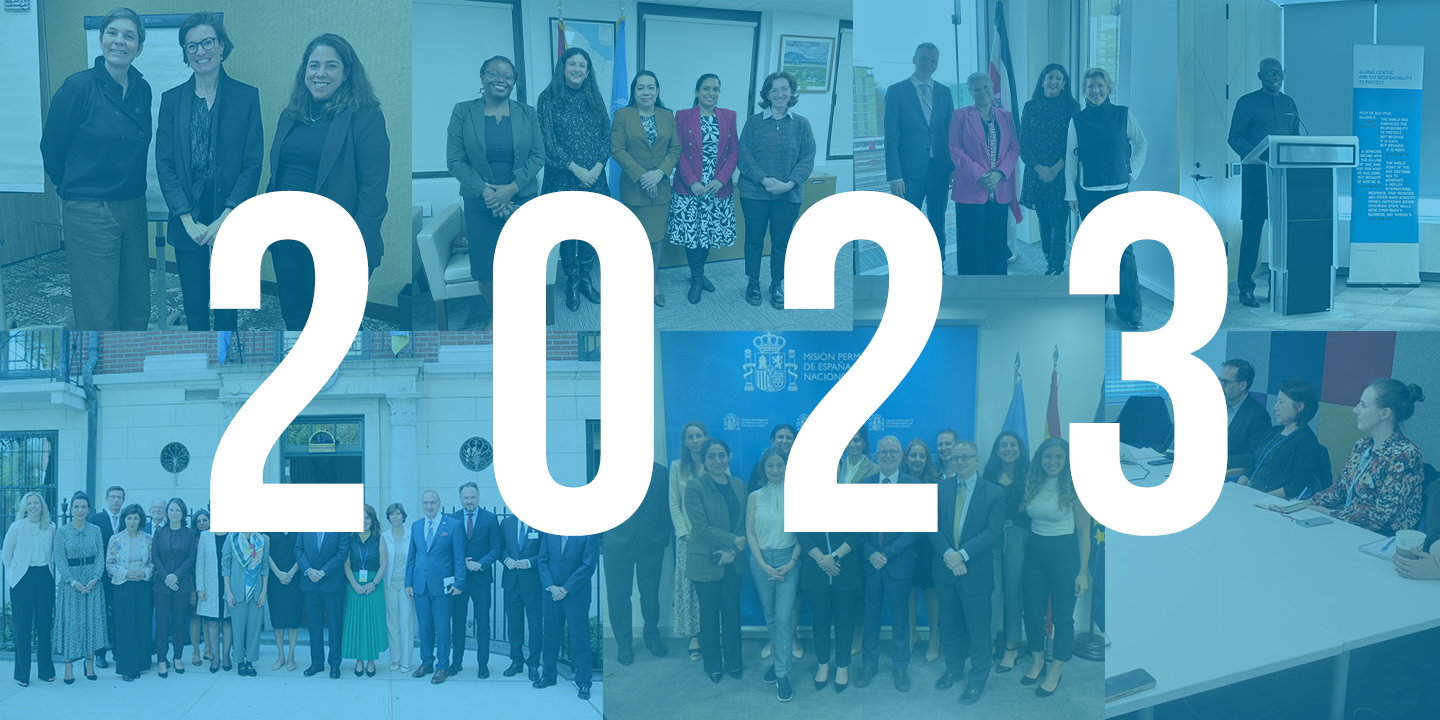
At Year’s End 2023
In 2023 the world confronted extreme turmoil. From the unspeakable horrors unfolding across Sudan and Israel and the Occupied Palestinian Territory to the unprecedented number of people forcibly displaced as a result of expanding conflicts and the longevity of protracted crises – countless populations around the world continued to face the threat of mass atrocity crimes.
Despite overwhelming evidence of atrocities and a clear need for continued international scrutiny of the situation in Ethiopia, in October member states of the UN Human Rights Council failed to renew the mandate of the International Commission of Human Rights Experts on Ethiopia. This year we also witnessed UN peacekeeping missions navigate significant challenges in complex and dangerous environments, resulting in a decrease in the UN’s protection footprint, such as in Mali.
At a time when the aspirational values enshrined 75 years ago in the Genocide Convention and Universal Declaration of Human Rights are under unprecedented attack, the Responsibility to Protect continues to be the most effective principle around which the international community can coalesce when vulnerable populations face the threat of genocide, war crimes and crimes against humanity. We at the Global Centre for the Responsibility to Protect have continued to fulfill our mandate to urge and influence the international community to protect vulnerable populations around the world, bolster preventive capacities and pursue accountability for international crimes under the principle of universal jurisdiction.
Throughout the year, the Global Centre shared our analysis on more than 30 countries and continued to apply an atrocity prevention lens to situations where populations are at risk of, or are currently facing, mass atrocity crimes. During June we sounded the alarm on rising atrocity risks, including the imminent risk of genocide, in Darfur, Sudan. Since October we have reported on the unconscionable suffering of populations in Gaza and Israel in various publications shared with UN Security Council members and other relevant stakeholders.
This year we also continued to engage with civil society and affected populations, including survivor communities, as critical partners in our collective advocacy to ensure their voices were centered in policy conversations regarding the response to atrocity situations, including in Myanmar, Syria and Yemen. As we celebrate the twenty-fifth anniversary of the Declaration on Human Rights Defenders this year, we want to remind all stakeholders to meaningfully support and engage with human rights defenders – who are often working on the frontlines in the most dangerous of circumstances – for the fulfillment, realization and universalization of human rights and atrocity prevention.
As this year comes to an end, we want to thank you for your support and engagement. We look forward to continuing to work with you to build a world where the principle of the responsibility to protect is upheld with consistency, courage and without exception.
We wish you a safe and healthy holiday season.